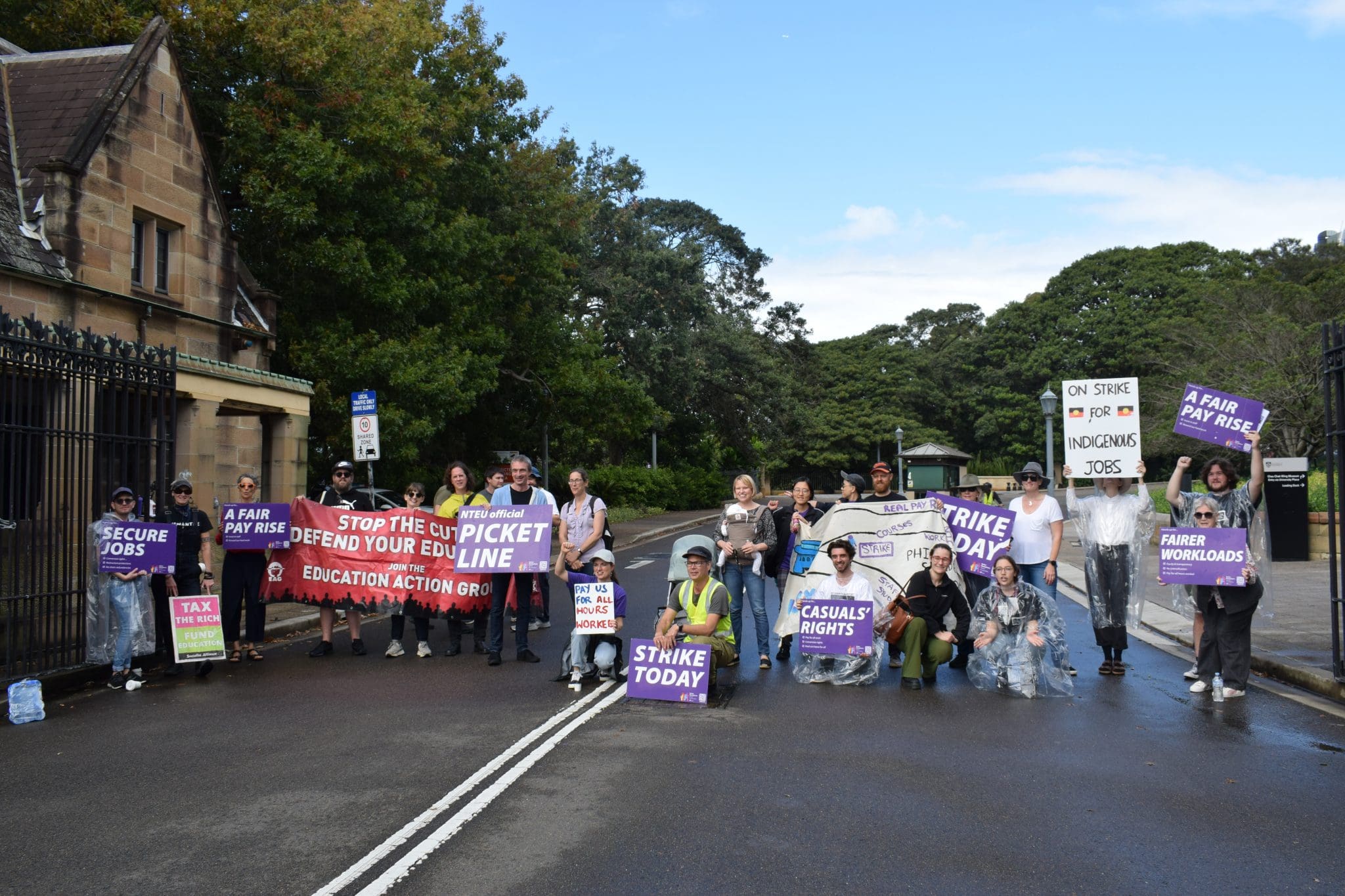Members of the University of Sydney Branch of the National Tertiary Education Union (NTEU) have voted to call off three days of planned strike action in Week Ten. Instead, staff voted to proceed with negotiations towards a final agreement with University management without taking strike action.
Attendees at the Branch members meeting rejected a motion put forward by a majority of the USyd Branch Committee. This motion would have seen Union members go on strike from 1-3 May, as a means of improving University management’s current offer to staff.
That motion sought strike action to meet the Union’s demands for: reduced numbers of staff in Education Focussed Roles (EFRs); a real pay rise; Indigenous employment parity by the end of the proposed agreement; fairer workloads; and a resolution of professional staff issues, including internal advertising.
Members instead resolved to “provisionally endorse the University’s Enterprise Agreement Package to Conclude Bargaining as an acceptable framework to finalise negotiations.”
The successful motion, moved by the minority of the Branch Committee, said that the Union’s final assent to an agreement would be “subject to final drafting and important clarifications concerning: the planned growth in, and problematic workloads for, Education Focussed Academics … [and] accountability benchmarks for improving levels of First Nations employment.”
Any final agreement between the Union and University still must be approved by NTEU members. The University will only avoid this if they use legal means of subverting the will of the Union, including a “non-union ballot”.
The Union is demanding Indigenous “Employment Parity” by the end of the proposed enterprise agreement period in 2026 which would see the University adopt a legally enforceable target for Indigenous workers at the University to make up approximately three percent of the total workforce, the same proportion as of Indigenous people in the Australian population.
The Union has offered a compromise position in which the University could meet this target if a Joint Consultative Committee of First Nations staff is satisfied that the University has made best efforts, albeit failed, to do so.
The University has agreed to establish this Joint Consultative Committee but not to employment parity nor the Union’s compromise.
There were only 80 First Nations’ staff employed at the University, according to its 2021 Annual Report, out of a workforce of 8145 total staff. This is one of the lowest rates of First Nations employment at any Australian university. Western Sydney University and the University of Technology Sydney have committed to Indigenous Employment parity by 2025 and 2023 respectively.
The University’s plans to employ up to 25% of all non-casual teaching staff in Education Focussed Roles (EFRs), with a workload composed of 70% teaching (with an initial two year reduction for some of those staff), and a right to transition to balanced employment after five years, remain contested by the NTEU.
The Union is proposing EFRs be capped at 20% of the relevant workforce, that teaching make up 60% of their workload, and that these staff accrue a right to transition earlier in their employment. They are also demanding that staff in these roles are not forced to work beyond what they are required to.
Issues pertaining to internal advertising of professional staff roles remain in dispute, particularly in the wake of the University’s spill-and-fill at the Student Centre.
Ishbel Dunsmore and Yasmine Johnson, USyd Students’ Representative Council, told Honi, “as members of the Education Action group and the student union more broadly, we had a big hand in organising students to go out and support staff on strike, because we believe unequivocally and without question that staff working conditions are student learning conditions.
“A huge part of fighting for these conditions is through strikes, and we believe that sustained industrial action is the way to win.
“We are proud to have stood on the side of staff on the picket lines and beyond, and will continue to fight for the right to a liberatory education, one which is run by and for staff and students.”
Enterprise bargaining between the parties has been ongoing for almost 24 months, the longest in the history of USyd and for the NTEU at any campus.
The University of Sydney Branch of the NTEU has been approached for comment.





